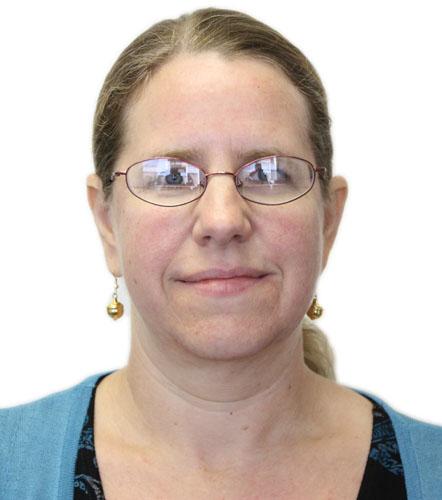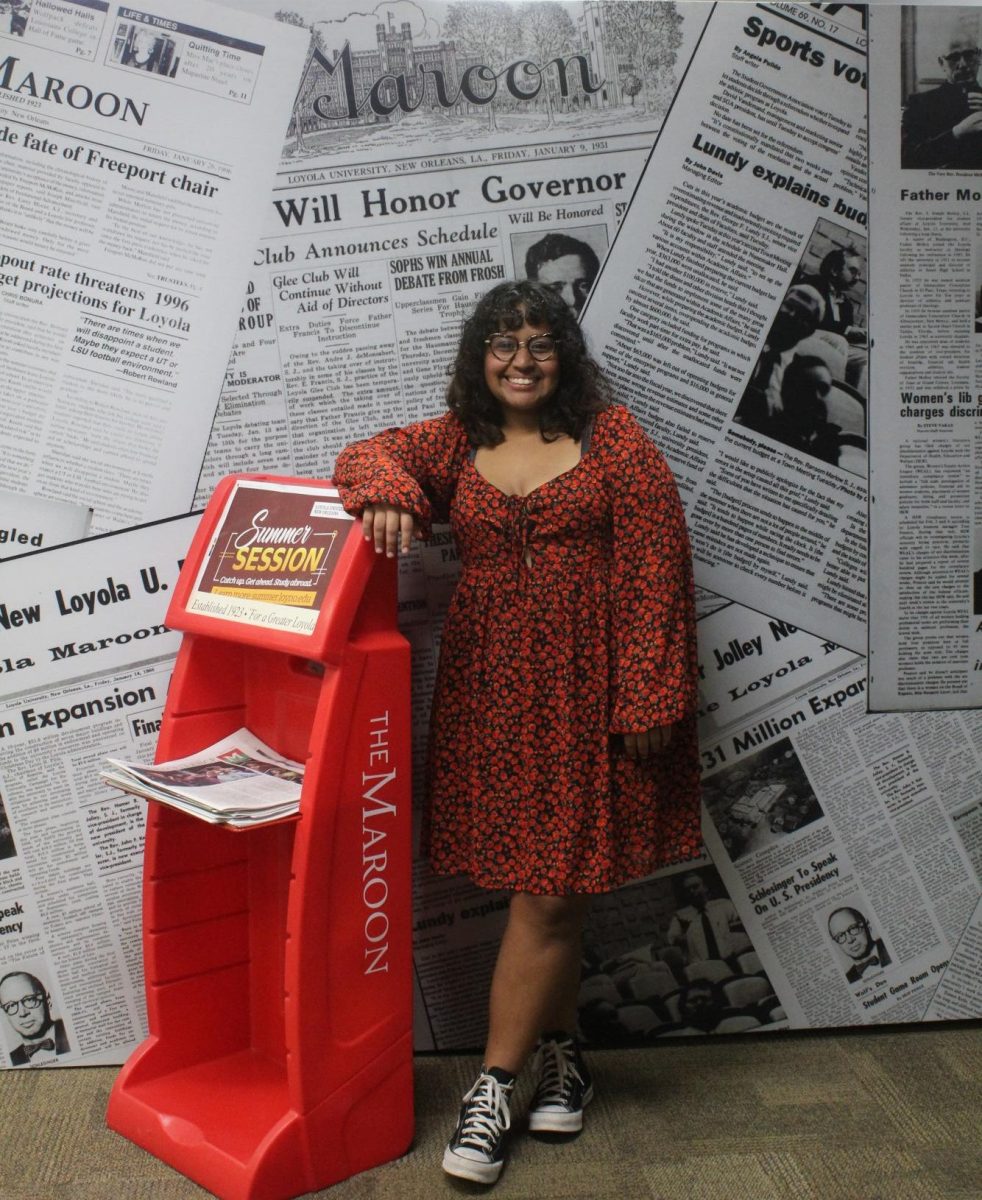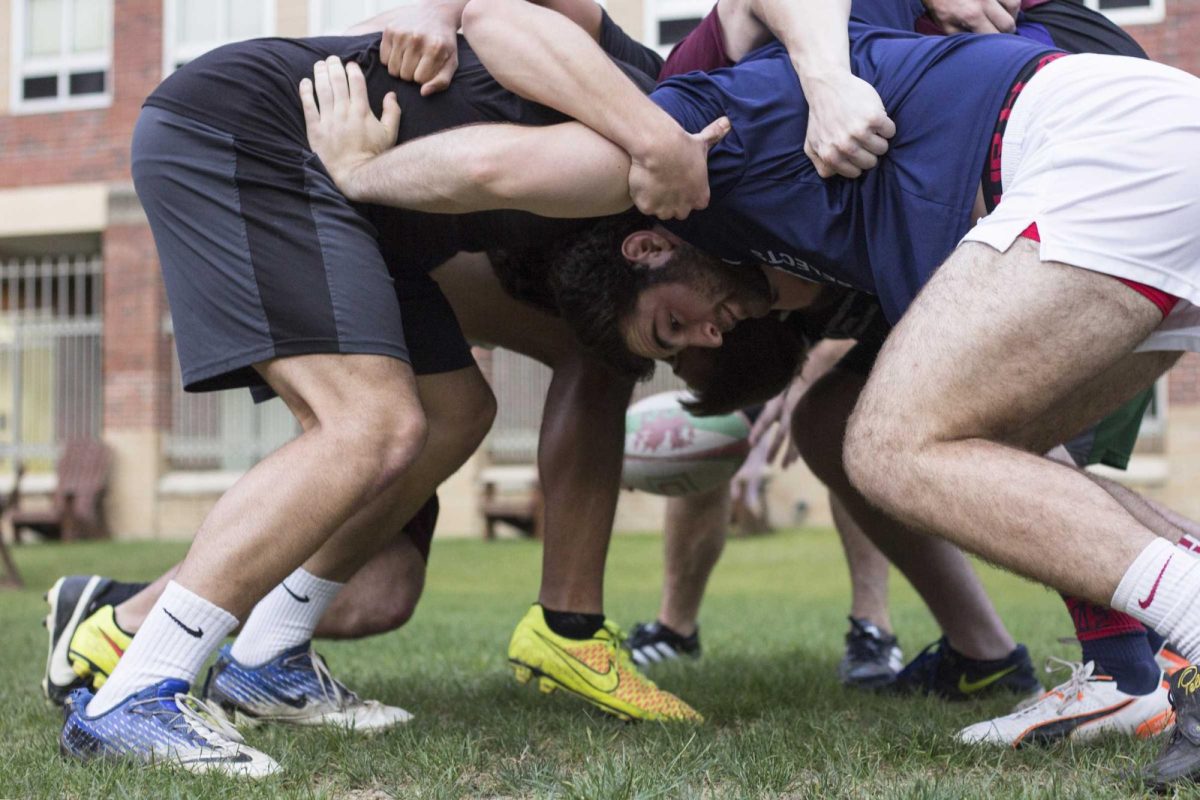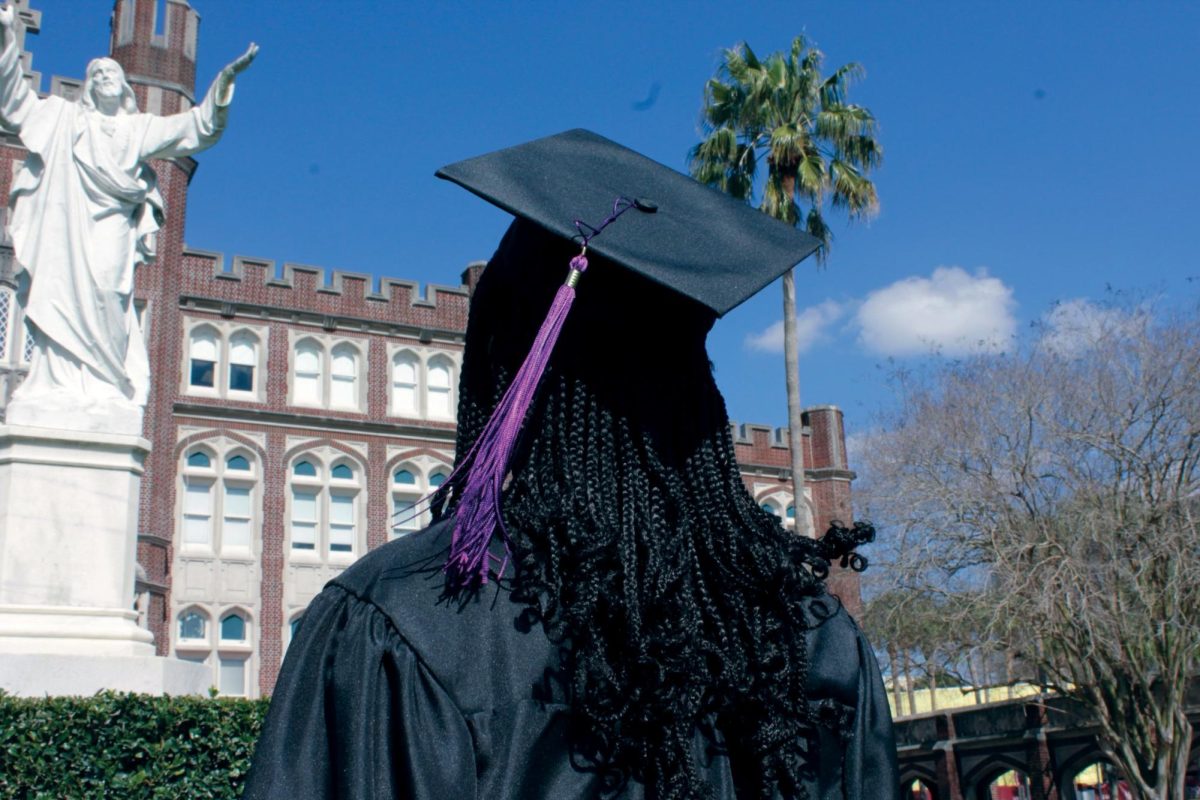A few days ago I walked into a local grocery store and was informed by a large sign in the doorway that “Our Seafood is Safe to Eat!” We all want to believe that, of course; we do love our shrimp and oysters and all kinds of fish. We don’t want the people who catch and harvest these critters for us to have their livelihoods damaged. We don’t want hundreds of dead dolphins washing up on our shores. And we don’t want to imagine our stunning white-sand Gulf Coast beaches intermittently covered in tar balls and mats of weathered oil for years to come.
What we want or don’t want, of course, has little bearing on reality. Dr. Riki Ott’s recent visit to Loyola’s campus gave us an excellent opportunity to hear firsthand what another seafood-based economy — the towns surrounding Alaska’s Prince William Sound — experienced after the previous biggest oil spill in U.S. waters from the tanker Exxon Valdez in 1989. The tanker, whose captain was under the influence of alcohol, went off course and was torn open on a well-marked reef, releasing somewhere between 11 and 32 million gallons of oil. The company staged a “cleanup” effort that was largely for show and actually further damaged the sound’s ecosystem. What they did to the human communities of the sound, however, was perhaps even worse. Native Alaskan subsistence economies — those that live off of hunting and fishing — were largely destroyed, and commercial fishermen were forced to sue Exxon for damages. Exxon, however, was able to drag the case out in court for over two decades. After all that time, the Supreme Court awarded the plaintiffs a pittance, nowhere near enough to recoup their massive losses in income from the spill.
Sociologists have extensively studied these Alaskan communities and have found that technological disasters create what we call a “corrosive community,” characterized by extremely high levels of post-traumatic stress disorder, domestic violence, clinical depression and suicide. Unlike natural disasters where the damage is generally clear and obvious and the recovery and rebuilding tasks ahead are fairly straightforward, technological disasters create long-term, confusing, controversial contamination; lawsuits that drag on literally for decades deny the disaster’s survivors an opportunity to move on with their lives. Members of impacted communities start fighting among themselves about how to proceed, and lose trust in the corporations and government agencies that were supposed to protect them and failed to do so. The environmental, psychological, sociological and economic results of the Valdez spill did not all manifest right away; often, they took years to emerge.
We must keep this in mind when we hear slogans that “the BP disaster is over” or “the oil spill in the Gulf wasn’t as bad as we feared.” BP’s rhetoric during and after the disaster has followed a script nearly identical to Exxon’s; they, too, have promised to clean up the coast, to make our fishermen whole and to pay “all legitimate claims.” BP’s logo is everywhere these days as they sponsor local cultural (and even environmental) events and take out ubiquitous newspaper, TV and website ads.
Meanwhile, however, disturbing news continues to emerge: nonexistent or deformed shrimp; dead dolphins washing ashore; very sick cleanup workers; more tar balls, more mats of oil on the sea floor; community and family stresses from financial ruin, from dealing with the claims paperwork, from dealing with the government, from feeling that they can’t even trust the Coast Guard anymore after watching them take orders from BP while the mile-deep well was gushing.
Local boosters have a hard line to walk when any disaster happens. They must somehow find a way to acknowledge its severity and their need for help without implying that their communities, financial institutions or products are unsafe. We’ve seen this in the years after Hurricane Katrina, as New Orleans has struggled to encourage investment and tourism while lobbying for more and more federal financial help. With the BP spill, we’d like to believe that it’s over, that it wasn’t so bad, that the seafood is just fine, that things are getting back to normal and all will soon be well.
But the truth is, it’s much too early to tell.
Nicole Youngman is a sociology professor. She can be reached at [email protected]
On the Record is a weekly column open to any member of Loyola’s faculty and staff. Those interested in contributing can contact [email protected]












